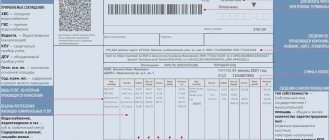Sanctions: what can happen
It is advisable to pay for consumed resources, as well as other services provided as part of the maintenance of multi-apartment residential buildings, in a timely manner, otherwise you can safely prepare for various troubles. These include the accrual of penalties for non-payment, shutdown of resources (electricity, hot water supply)
, as well as to the appearance of statements of claim sent to the judicial authorities in order to collect the debt owner.
The right for public utilities to apply such sanctions is prescribed in the legislation; for more detailed information, it is worth studying Article 14 of the Housing Code of the Russian Federation.
The initiators of these troubles can be both management companies, which automatically incur debts to resource suppliers, and the resource suppliers themselves, if the owners interact with these organizations directly (or through the HOA)
Accordingly, if the court makes a decision in favor of the plaintiff, the debt collection procedure begins. This is done by bailiffs, who legally have the right not to limit themselves to reminders or verbal demands, but can also seize any valuables from the apartment for subsequent sale in order to pay off the debt. Well, and, of course, in some cases, a sanction such as eviction from an apartment is used, which will be sold, and the funds will be used to pay off debts.
We don’t pay for two or three months: there are no critical consequences
If payment of utility bills is delayed by more than one month, the management company will begin to charge a penalty (for the unpaid amount)
. Thus, the penalty is charged from the second month of delay, and not from the first, which means that the owner can actually postpone payment for a month without any consequences for his budget. However, sometimes there are cases when, for some reason, it is more profitable to pay everything off after a while, including penalties, than to pay bills regularly.
Therefore, you need to understand the mechanism for calculating this penalty and its possible sizes. The penalty is calculated for each day of delay and is tied to the current refinancing rate (the rate at which the Central Bank lends to other banks)
. In addition, the percentage of penalties depends on the length of delay in payment:
- From the second month to the third the penalty is 1/300 of the rate;
- Starting from the fourth month and subsequent months - 1/150 of the rate (that is, you will have to pay twice as much)
.
Speaking in numbers, we can give the following example:
If the debt amount is 2500 rubles, which remained for 10 days, you will have to pay 1/300 of the rate, which today is 7.5%. That is, through simple mathematical calculations we get: (2500 rubles * 10 days / 300) * 7.5% = 6.25 rubles .
For the first month of delay you will have to pay about 20 rubles, for the second – about 40 rubles.
Thus, these sanctions, taking into account the very democratic amounts of fine payments and their ratio to the principal amount of the debt, can be easily survived. The only thing is that it is undesirable to get carried away too much, since the amount of the principal debt may accumulate, which will be unaffordable for a one-time payment.
In this case, you will have to restructure the debt, and at the same time pay current bills that no one has canceled.
We haven’t paid for three to six months: the situation is heating up
So, three months is the delay that utility companies give before resorting to more serious sanctions.
Namely: after three months of non-payment, the question of temporarily disconnecting the apartment from utilities may be raised.
This unpleasant procedure is quite well established today - after sending a notification (possibly either personal receipt or mailing),
three days later one or more services are disconnected. After paying the debt, services are connected within a few days.
It is worth saying that this measure is practiced much less frequently than today there are owners who have problems with utility debts for more than three months. In addition, this can only happen if the owner completely ignores the need to make payments.
If some money (part of the amount of payments or debt) is paid quite regularly, utility companies do not dare to take such measures. Most often, disconnection is practiced when the debt period has reached (or exceeded) one year.
We haven’t paid for more than six months: is it possible to lose our housing?
Now about the last resort - the eviction of the defaulter from the apartment for the sale of real estate in order to pay off debts to utility services.
Many people think that this measure is directly dependent on the accumulated debt or the period of non-payment. In fact, the management company can initiate eviction after six months of non-payment.
However, in reality, eviction is practiced extremely rarely due to the huge number of technical difficulties in implementing this measure, and utility workers know this well. It is much easier for them to shift the burden of debt collection to bailiffs or simply sell the debt to collectors.
Actually, those who are more or less realistic to evict are those who live in the apartment under a social tenancy agreement. It is technically possible to take an apartment away from the owner, but there are a number of restrictions:
- You cannot evict minors (and, accordingly, parents)
; - You cannot take away an apartment if it is the only housing that is owned by the resident.
- And most importantly: you cannot even begin the eviction procedure (at least the courts do not make such a decision)
if payments were made, even partially, during the specified period.
Moreover, in 2021 there are amendments to the law that define additional restrictions on the possibility of eviction. Namely, valid reasons were approved, which were an obstacle to regular payments, these are:
- Difficult financial situation;
- Dismissal from the workplace;
- Serious illness of the employer or a member of his family;
- Disability of the employer or members of his family;
- There were funeral expenses;
- Presence of minor children in the employer's family.
Thus, with minimal knowledge of the law, a defaulter can find a way to reserve the right and opportunity to dispose of residential real estate. This means that legislators, in fact, provided for the impossibility of mass deprivation of apartments from citizens of the Russian Federation in the context of the difficult economic situation in the country.
Seizure of property
The next step is trial. After this, bailiffs come into play and can prohibit the debtor from leaving the country, temporarily deprive him of his driver’s license, oblige his employer to withhold from his salary and transfer up to 50% of his income to pay off the debt, seize and put up for auction property, including an apartment. . “But an apartment can be sold at auction for housing and communal services debts only if the owner has other suitable housing. True, this is also not easy; the principle of proportionality applies here. If the debt is 50 thousand, not a single bailiff will arrest and sell at auction an apartment worth 8–9 million. And if the debt is already astronomical (1.5–2 million), then the owner has something to fear,” warns Marat Amanliev.
A real nightmare can await debtors who live in an apartment under a social tenancy agreement and have not paid utility bills for more than six months. They can be evicted from the apartment, given in exchange at least 6 square meters in the dormitory. But the decision to evict is made only by a judge. If the debt arose for a good reason—loss of job, illness, etc.—then the court will refuse to use such a measure.
Is it possible not to pay debts? Debtor's life
However, does this mean that the defaulter has the opportunity, on completely legal grounds, to continue to live and not pay utility bills?
Actually this is not true.
- First, once you accumulate a certain amount of debt, you can say goodbye to the idea that you own your home. The apartment will be seized, and no legal transactions can be carried out with it until the debt is fully repaid, which is especially important - it cannot be passed on by inheritance. After the death of each owner, his share becomes the property of the organization in whose favor the encumbrance (seizure)
.
- Secondly,
no one canceled
(by court decision) And the fact that you cannot deprive the owner of an apartment does not mean that you cannot deprive him of valuable (and not so valuable)
things that are in the apartment, of his personal vehicle.
The most unpleasant thing for the defaulter in this situation is that, among other property, bank accounts (and, accordingly, cards)
.
He will not be able to receive any money without part of it being written off to pay off the debt. However, this paragraph contains one small but important point - the amount of deduction should not exceed 50% of the salary or other income received for the calendar month.
- For those who, in principle, have money, but for some reason refuse to pay for utilities, the following restriction is provided: a ban on leaving the country. At the border he will simply be turned back if the amount of his debt reaches 30 thousand rubles (at the moment, deputies are trying to change the law so that the “travel ban” amount is increased to 60 thousand rubles)
.
Debt repayment methods
The debtor has the right to deposit funds into the utility account in any convenient way:
- pay at the cashier. During a personal visit, the client can also change the terms of the contract or demand a recalculation;
- make a transfer at the bank. The period for crediting cash is up to 3 working days. Financial institutions charge a commission of 0–5% for services;
- pay online. Through online banks, wallets or payment services. This is the fastest way to pay for utilities, since funds are credited 1 minute after the transaction;
- through payment terminals. Receipt time is from 1 minute to 24 hours. It is recommended to keep receipts to prove the transfer of funds if a technical failure occurs.
Management companies do not impose requirements on debtors regarding the method of making payments to repay obligations. It is beneficial for HOAs and other organizations that the home owner pays off debts as quickly as possible, so they accept any receipts as confirmation that funds have been deposited.
You will learn what happens if you don’t pay utilities from the following video:
One more thing about debt collection: joint and several liability
It is important to understand that the debt can be collected not only from the owner or the responsible tenant (if we are talking about a rental agreement or social rent)
, but also those who live in the same area. The only legal limitation regarding this is the presence of legal capacity status for those living in the apartment.
This is called joint and several liability, and in case of inability (unwillingness)
owner or tenant to pay off utility debts
(by court decision),
utility companies can demand their return from those who live with him.
That is, those who move into an apartment with the consent of the owner (tenant)
, evidence of which is the presence of registration among the residents.
Safe period
How long can you go without paying rent without consequences ?
Without any special consequences, you can not pay utility bills for 3 months.
During this period, no sanctions will be applied to the defaulter.
The only thing that threatens the defaulter during these 3 months is the accrual of a daily penalty after the expiration of the monthly period for the obligatory payment in the amount of 1/300 of the refinancing rate from the 31st to the 90th day of delay and 1/130 of the rate after the 91st day of delay.
The total amount of penalties for the year can reach an amount equal to 2-3 months of apartment payments.
Statute of limitations
In principle, there is a statute of limitations - the moment from which the obligation to pay debts for housing and communal services is lost, this period is 3 years, it would seem that you can simply forget about the debt. However, in Russian reality, bailiffs continue to collect debt even after the statute of limitations has expired - judicial practice suggests that in order to terminate the actions of bailiffs, debtors have to go to court.









